Gastritis is a condition that involves the inflammation of the stomach lining. It can manifest in various forms, from acute to chronic, and can significantly impact one’s quality of life. Understanding the symptoms, causes, and treatment options for gastritis is crucial for managing the condition effectively.
What is Gastritis?
Gastritis is the inflammation, irritation, or erosion of the stomach lining, known as the gastric mucosa. This condition can be acute, occurring suddenly, or chronic, developing gradually over time. Gastritis can affect individuals of all ages and can be mild or severe.
Symptoms of Gastritis
The symptoms of gastritis can vary depending on the severity and duration of the condition. Common symptoms include:
- Abdominal Pain: A burning or gnawing pain in the upper abdomen is a common symptom.
- Nausea and Vomiting: Many people with gastritis experience frequent nausea and vomiting.
- Bloating: A feeling of fullness or bloating in the abdomen can occur.
- Indigestion: Gastritis can cause discomfort and indigestion after eating.
- Loss of Appetite: Some individuals may lose their appetite or feel full quickly.
- Black or Tarry Stools: This can indicate bleeding in the stomach, a serious complication of gastritis.
- Hiccups: Persistent hiccups can also be a symptom of gastritis.
Causes of Gastritis
Several factors can contribute to the development of gastritis. These include:
- Infection: The most common cause of gastritis is infection with Helicobacter pylori (H. pylori) bacteria. This infection is usually acquired in childhood and can persist throughout life if not treated.
- Medications: Nonsteroidal anti-inflammatory drugs (NSAIDs) like aspirin and ibuprofen can irritate the stomach lining and cause gastritis, especially when taken regularly or in high doses.
- Alcohol: Excessive alcohol consumption can erode the stomach lining, leading to inflammation and gastritis.
- Stress: Severe stress due to surgery, injury, or critical illness can trigger gastritis, known as stress-induced gastritis.
- Autoimmune Disorders: In some cases, the body’s immune system attacks the stomach lining, causing autoimmune gastritis.
- Bile Reflux: The backflow of bile into the stomach from the bile tract can irritate the stomach lining.
- Other Infections: Viral and fungal infections can also cause gastritis, particularly in individuals with weakened immune systems.
Diagnosis of Gastritis
Diagnosing gastritis involves a combination of medical history, physical examination, and diagnostic tests. Common tests include:
- Endoscopy: A thin, flexible tube with a camera is inserted into the stomach to examine the lining and take biopsies if necessary.
- Blood Tests: These can check for anemia, H. pylori infection, and other underlying conditions.
- Stool Tests: These tests can detect the presence of H. pylori bacteria or blood in the stool.
- Breath Tests: A special breath test can identify H. pylori infection.
Treatment Options for Gastritis.
- Dietary Changes: Avoiding foods and beverages that irritate the stomach, such as spicy foods, alcohol, and caffeine, can help manage symptoms.
- Lifestyle Modifications: Reducing stress, quitting smoking, and limiting NSAID use can prevent further irritation of the stomach lining.
- Regular Monitoring: Chronic gastritis may require ongoing monitoring and treatment adjustments by a healthcare provider.
Preventing Gastritis.
While it may not be possible to prevent all cases of gastritis, certain measures can reduce the risk:
MEDICINE FOR GASTRITIS
- Practice Good Hygiene: Proper handwashing and food safety practices can prevent H. pylori infection.
- Limit NSAID Use: Use NSAIDs sparingly and under medical supervision, especially if you have a history of gastritis.
- Moderate Alcohol Consumption: Limit alcohol intake to prevent irritation of the stomach lining.
- Manage Stress: Stress management techniques such as meditation, exercise, and therapy can help reduce the risk of stress-induced gastritis.
- Healthy Diet: A balanced diet with plenty of fruits, vegetables, and whole grains can support overall digestive health.
- Nux Vomica: For gastritis caused by excessive alcohol, spicy food, or stress, characterized by nausea, indigestion, and irritability.
- Arsenicum Album: For burning pain in the stomach, vomiting, and diarrhea, often with a sensation of anxiety and restlessness.
- Carbo Vegetabilis: For bloating, belching, and indigestion, especially when accompanied by a heavy feeling in the stomach.
- Pulsatilla: For gastritis with a sense of fullness and bloating, especially after eating fatty or rich foods, and when symptoms improve in the open air.
- Lycopodium: For gastritis with bloating, especially after small meals, and when accompanied by gas and a feeling of pressure in the stomach.
- Natrum Phosphoricum: For acid reflux, sour belching, and burning pain in the stomach, often due to excessive consumption of sugar or dairy.
- Ipecacuanha: For persistent nausea and vomiting, along with a clean tongue despite severe stomach discomfort.
- Antimonium Crudum: For gastritis with a white-coated tongue, belching, and a distended abdomen, often triggered by overeating.
- Bryonia: For gastritis with stitching pain in the stomach, thirst for large quantities of water, and symptoms aggravated by movement.
- Chamomilla: For gastritis with irritability, restlessness, and sensitivity to pain, often in children or those with a sensitive temperament.
- Belladonna: For sudden, severe pain in the stomach, with a sensation of fullness and redness of the face.
- Phosphorus: For gastritis with burning pain, vomiting of blood, and a desire for cold drinks which are vomited as soon as they become warm in the stomach.
- China Officinalis: For gastritis with bloating, gas, and weakness, often following a period of diarrhea or loss of fluids.
- Kali Bichromicum: For gastritis with a feeling of heaviness in the stomach, thick, ropy mucus, and symptoms that improve after eating.
- Sulphur: For chronic gastritis with burning pain, acidity, and a craving for spicy foods, often accompanied by a general feeling of heat in the body.
How to Use Homeopathic Remedies
- Consult a Practitioner: It’s crucial to consult with a qualified homeopathic practitioner before starting any treatment to ensure the remedy is appropriate for your specific symptoms and health condition.
- Dosage: Homeopathic remedies are usually taken in the form of small pellets placed under the tongue, but the dosage and frequency should be tailored to individual needs as advised by a practitioner.
- Monitoring Symptoms: Keep track of your symptoms and any changes after taking the remedy to help your practitioner adjust the treatment if necessary.






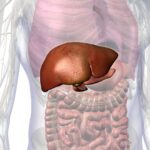



















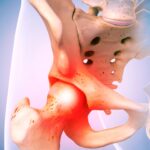









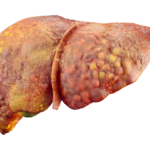
























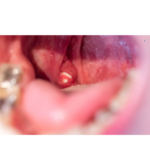







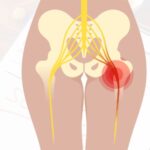


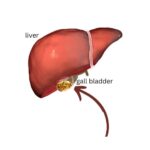












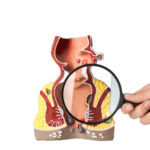












I couldn’t resist commenting
I just wanted to post a note to appreciate you for these fantastic techniques you are giving on this site. My time consuming internet search has at the end been rewarded with wonderful strategies to share with my visitors. I would mention that we site visitors actually are truly endowed to exist in a really good site with very many perfect people with very helpful guidelines. I feel very blessed to have discovered your site and look forward to tons of more brilliant minutes reading here. Thank you again for all the details.